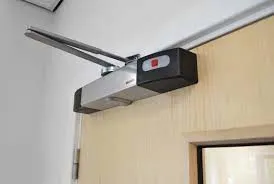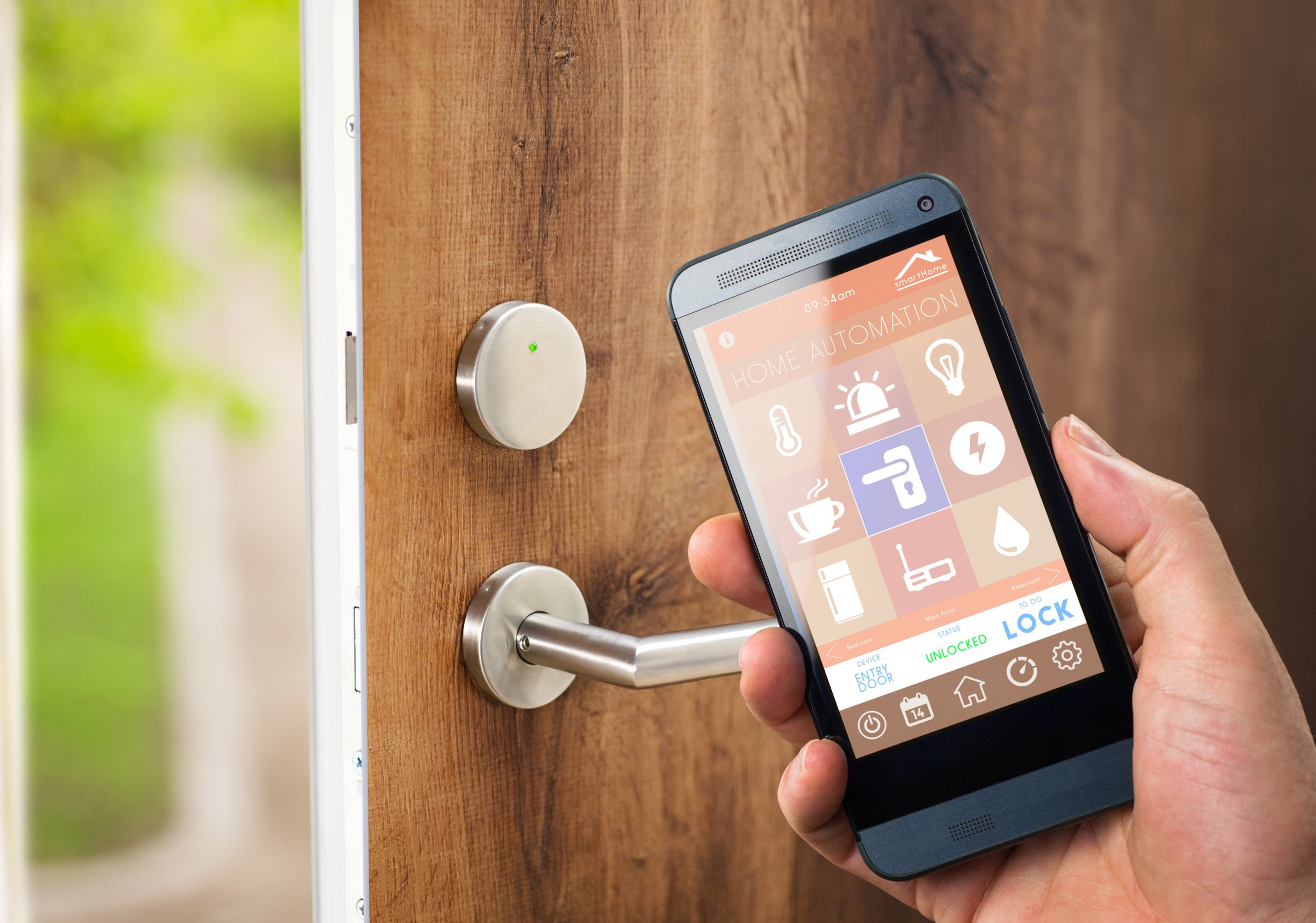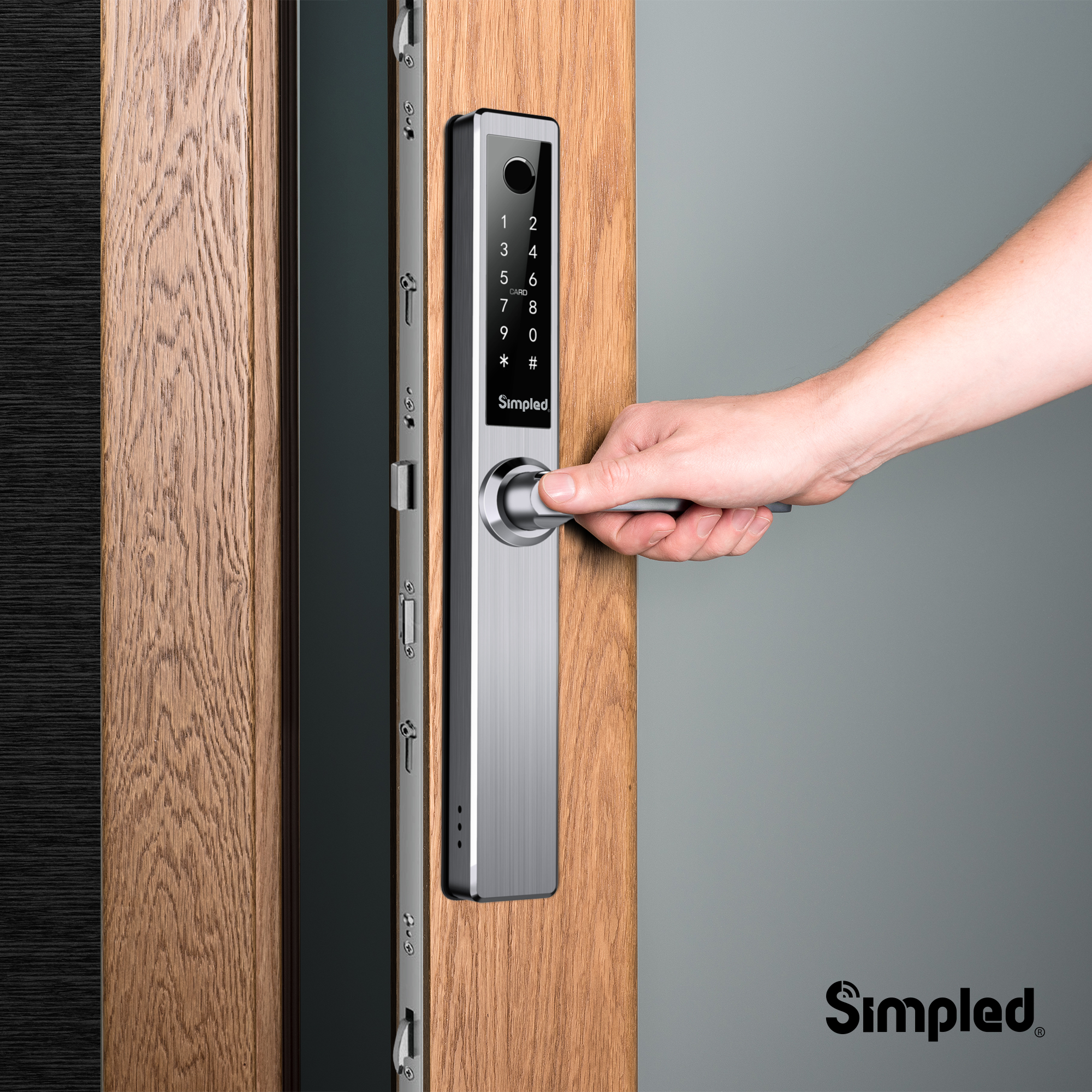The Evolution of Smart Locks A Brief History and Future Predictions

The Ancient Roots of Smart Locks
The history of locks dates back thousands of years to the ancient Egyptians, who developed some of the earliest known locking mechanisms. These early locks were made from wood and featured pins that could be lifted to unlock the mechanism. Over time, these simple wooden pin locks evolved into more complex systems that included metal components.
These ancient technologies paved the way for modern-day smart lock systems by showing us how we can use mechanical components to secure our homes. By understanding the evolution of locks, homeowners can make more informed decisions when considering upgrading to a smart lock system.
Modern smart lock technology has improved upon traditional locking mechanisms in several ways. For example, smart locks offer features like remote access and monitoring capabilities that make it easier to keep tabs on your home's security status. Smart locks also offer advanced security features like fingerprint recognition and facial recognition technology, making them more secure than traditional mechanical locks.
The history of locks shows us that mechanical components have been used for thousands of years to secure our homes. Modern smart lock technology has built upon this foundation by offering advanced features that improve security and convenience. By understanding the evolution of locks, homeowners can make more informed decisions when considering upgrading to a smart lock system.
From Electric Door Locks to Bluetooth enabled Systems A Timeline
Electronic door locks have come a long way since Samuel Segal's 1894 patent. Here is an overview of key milestones in the development of electronic door locks, from their inception to modern-day smart lock systems.
One of the most significant developments in electronic door locks was the introduction of keypad entry systems, which revolutionized access control in commercial settings. These systems allowed employees to enter a code instead of using a physical key, making it easier to manage access control and monitor who was coming and going.
More recently, Bluetooth-enabled systems have allowed users to control their locks with smartphones and other mobile devices. This technology has made it easier for homeowners to monitor their homes' security status remotely and grant access to guests without needing to be physically present.
Each type of technology has its benefits and drawbacks. Keypad entry systems are reliable but can be time-consuming for users who need to memorize codes. Bluetooth-enabled systems offer greater convenience but require a stable internet connection and may be prone to hacking.
Electronic door locks have evolved significantly over the years, from wooden pin locks to modern-day smart lock systems. Understanding the evolution of these technologies is essential when considering upgrading your home's security system. Whether you opt for a keypad entry system or a Bluetooth-enabled smart lock, each type of technology offers unique benefits that can enhance your home's security and convenience.
Modern Features Voice Control, Remote Access, and More

Modern smart lock systems offer a range of features that make them more convenient and secure than traditional mechanical locks. One of the most popular features is voice control, which allows users to lock and unlock their doors using voice commands. This feature is especially useful for people with disabilities or those who have their hands full.
Remote access capabilities are another essential feature offered by modern smart lock systems. Through smartphone apps or virtual assistants like Amazon Alexa or Google Assistant, homeowners can monitor their home's security status and grant access to guests remotely. This feature provides peace of mind knowing that your property is secure even when you're away from home.
Smart locks also integrate with home automation systems, allowing homeowners greater control over their living environment beyond just security measures alone. For example, cameras, lights, and thermostats can be integrated into a single system, making it easier to manage energy usage and save on electricity bills.
Another benefit of integrating smart locks with other home automation systems is the potential energy savings that can be achieved through this integration. For instance, when you leave your home, the system can automatically turn off lights and adjust the thermostat to save energy.
Overall, modern smart lock technology offers a range of convenience factors that make them an excellent investment for homeowners looking to upgrade their home security systems. With advanced features like voice control, remote access capabilities, and integration with home automation systems, smart locks provide a more sustainable and secure solution to traditional mechanical locks.
Market Trends Growth Projections & Key Players
Smart locks are becoming increasingly popular worldwide due to the growing demand for home security solutions and advancements in technology. The global market for smart locks is projected to grow at a CAGR of 13.6% from 2021 to 2028, according to a report by Grand View Research.
Major players operating within this industry include August Home Inc., Kwikset Corporation, Schlage Lock Company LLC, and others. These brands offer a range of smart lock systems with varying price points and features, making it easier for homeowners to choose the system that best fits their needs.
For example, August Home Inc. offers a range of smart lock systems that integrate with other home automation systems, including cameras and lights, allowing homeowners greater control over their living environment beyond just security measures alone. Kwikset Corporation provides smart lock systems that integrate with Amazon Alexa and Google Assistant, allowing users to control their locks using voice commands.
Schlage Lock Company LLC offers smart lock systems that feature advanced security features like fingerprint recognition and facial recognition technology, making them more secure than traditional mechanical locks. These brands' offerings showcase the convenience factors offered by these devices while providing enhanced security measures.
The global market for smart locks is expected to grow significantly in the coming years due to increasing demand for home security solutions. Major players operating within this industry offer a range of smart lock systems with varying price points and features, making it easier for homeowners to choose the system that best fits their needs. As technology continues to advance, we can expect even more innovative features to be added to these devices in the future.
Residential vs Commercial Applications Differences & Similarities
Smart lock systems have gained popularity in both residential and commercial applications due to their convenience and enhanced security measures. The residential sector accounts for the largest share globally, driven by rising concerns about home security. On the other hand, commercial applications are gaining traction as businesses seek ways to improve security while reducing costs associated with traditional key-based systems.
Residential smart lock systems typically offer features like remote access capabilities, voice control, and integration with home automation systems. These devices are easy to install and can be controlled using a smartphone app or virtual assistant. They come in different price points depending on the features offered.
Commercial smart lock systems, on the other hand, are designed for high-traffic areas and require more robust installation requirements. They typically offer advanced features like audit trails, which allow business owners to monitor who is coming and going. These systems can also integrate with other security measures like cameras and alarm systems.
Both types of smart lock systems offer enhanced security measures compared to traditional mechanical locks. They eliminate the need for physical keys, making it harder for intruders to gain access. Smart lock systems also provide convenience factors like remote access capabilities that allow homeowners or business owners to manage their locks from anywhere.
Smart lock systems offer convenience and enhanced security measures for both residential and commercial applications. Each type of system offers unique features that cater to specific needs. Homeowners can benefit from features like remote access capabilities and integration with home automation systems, while business owners can benefit from advanced features like audit trails.
Biometric Authentication Methods Fingerprint Scanning & Beyond

Biometric authentication methods, such as fingerprint scanning, have become more common in high-security applications like government buildings or financial institutions where access needs to be tightly controlled. These systems offer a higher level of security than traditional mechanical locks, as they require a unique physical characteristic to grant access.
Facial recognition and iris scanning are potential biometric technologies that could be integrated into future smart lock systems. Facial recognition technology is already being used in some smartphones for unlocking the device, and it could be used for smart locks as well. Iris scanning is another potential technology that could be used for smart locks, as it offers a high level of accuracy and is difficult to fake.
The benefits of biometric authentication methods include enhanced security measures and convenience factors. Users no longer need to carry physical keys or remember codes, making it easier to manage access control. However, there are also drawbacks associated with these types of authentication methods, including concerns about privacy and data security.
Biometric authentication methods offer a higher level of security than traditional mechanical locks and provide greater convenience for users. As technology continues to advance, we can expect even more innovative features to be added to these devices in the future. However, it's essential to consider the potential drawbacks associated with these technologies before implementing them in your home or business.
Artificial Intelligence AI Integration Learning User Behavior Patterns
Artificial Intelligence (AI) integration is becoming increasingly popular in smart lock systems. Some manufacturers are incorporating AI technology into their products, which allows them to learn user behaviour patterns and adapt accordingly. This integration provides several benefits, including improved security measures, energy savings through automation, and enhanced convenience factors.
The primary benefit of AI integration is improved security measures. Smart locks with AI technology can learn user behaviour patterns and detect anomalies that could indicate potential security breaches. They can also alert users if someone tries to gain access using an unauthorized method.
Another benefit of AI integration is energy savings through automation. Smart locks can integrate with other home automation systems like lights and thermostats, allowing users to manage their home's energy usage more efficiently. For example, the system can turn off lights and adjust the thermostat when the user leaves the house, saving energy and reducing electricity bills.
However, there are potential drawbacks associated with AI integration in smart lock systems. One major concern is privacy. The use of AI technology raises concerns about data collection and how that data will be used. Users may be uncomfortable with the idea of their behaviour patterns being recorded and analyzed by a third party.
AI integration in smart lock systems provides several benefits, including improved security measures and energy savings through automation. However, it's essential to consider the potential drawbacks associated with this technology before implementing it in your home or business. Manufacturers must ensure that they are transparent about data collection and use to address privacy concerns and build trust with users.
Cybersecurity Risks Associated with Smart Locks
Smart locks offer convenience and enhanced security measures, but they can also pose cybersecurity risks if not properly secured against hacking attempts. Hackers can exploit vulnerabilities in smart lock systems, gaining access to homes or businesses. To ensure maximum protection, there are several tips on securing your smart lock system from cyber threats.
Firstly, regularly updating firmware is essential to keep the system up-to-date with the latest security patches. Manufacturers often release firmware updates to address known vulnerabilities and improve the system's overall security.
Using strong passwords is another crucial factor in securing your smart lock system. Avoid using common passwords like "123456" or "password," as they are easy to guess. Instead, use a combination of letters, numbers, and symbols that are difficult to crack.
Enabling two-factor authentication (2FA) is another effective way to secure your smart lock system. 2FA requires users to enter a code sent to their mobile device or email address in addition to their password, providing an extra layer of security.
It's also essential to be cautious when granting access to others. Only share access codes with trusted individuals and revoke access immediately if necessary.
While smart locks offer enhanced convenience and security measures, it's crucial to take steps to secure them from cyber threats. Regularly updating firmware, using strong passwords, enabling 2fa, and being cautious when granting access are all effective ways to protect your smart lock system from hackers.
Cost Considerations Are Smart Locks Worth the Investment?
Smart locks are a modern-day digital lock system that offers enhanced convenience and security measures compared to traditional locking mechanisms. However, the cost difference between these two systems can vary significantly. Traditional locking mechanisms are relatively inexpensive compared to smart locks, which can be quite costly.
When deciding whether investing in a smart lock is worth it, several factors need to be considered. The convenience offered by these devices is one of the primary benefits. Smart locks allow users to manage access control remotely, eliminating the need for physical keys or codes. They also integrate with home automation systems, providing energy savings through automation.
Another benefit of smart locks is increased security measures. These devices offer advanced features like biometric authentication and remote access capabilities that provide a higher level of security than traditional mechanical locks.
However, there are potential drawbacks associated with smart locks that should be considered before making an investment. Smart locks can pose cybersecurity risks if not properly secured against hacking attempts. Additionally, they require power sources like batteries or electricity, which can be an added expense.
Investing in a smart lock system depends on individual needs and budget considerations. While they offer enhanced convenience and security measures, they come at a higher cost than traditional locking mechanisms. Ultimately, the decision to invest in a smart lock system should be based on an assessment of individual needs and budget constraints.
Temporary Access Codes & Other Innovative Features
Smart locks have revolutionized the way we secure our homes and businesses, offering advanced features like temporary access codes and geofencing capabilities. Temporary access codes allow homeowners to grant access to guests or service providers without having to physically hand over a key. This feature is particularly useful for short-term rentals or when expecting visitors.
Geofencing capabilities are another innovative feature available within some smart lock models. This technology automatically unlocks the door as you approach it, eliminating the need to fumble with keys or enter a code manually. This feature offers enhanced convenience and can save time when entering or leaving the home.
These features benefit homeowners in several ways. Temporary access codes offer greater control over who has access to their property, reducing the risk of theft or damage. Geofencing capabilities offer enhanced convenience, particularly for those with busy schedules or mobility issues. Additionally, smart locks can integrate with other home automation systems, providing energy savings through automation.
Smart locks have come a long way since their inception, offering advanced features that enhance convenience and security measures. Temporary access codes and geofencing capabilities are just two examples of innovative features available within some models. These features benefit homeowners in several ways, providing greater control over access to their property and enhancing convenience factors.
Future Predictions Blockchain Technology & More
The future of smart lock technology is promising, with several advancements on the horizon. One potential development is blockchain integration for enhanced security measures. Blockchain technology offers a decentralized and tamper-proof system that can improve the security of smart locks, providing greater protection against hacking attempts.
Another emerging technology that will continue to shape the evolution of smart locks is NFC (Near Field Communication) and wifi connectivity. These features offer enhanced convenience and accessibility, allowing users to manage access control remotely and integrate with other home automation systems.
However, there are both benefits and drawbacks associated with these new technologies. While blockchain integration can improve security measures, it may also add complexity and cost to the system. Similarly, NFC and wifi connectivity offer enhanced convenience but may pose cybersecurity risks if not properly secured.
The future of smart lock technology looks bright, with several advancements on the horizon. Blockchain integration and NFC/wifi connectivity are just two examples of emerging technologies that will continue to shape the evolution of smart locks. However, it's essential to consider both the benefits and drawbacks associated with these new technologies before implementing them in your home or business.
Final Thoughts Making an Informed Decision About Smart Locks
Smart locks offer enhanced convenience and security measures compared to traditional locking mechanisms. However, they come at a higher cost and may pose cybersecurity risks if not properly secured. When making an informed decision about upgrading to a smart lock system, it's essential to consider individual needs and preferences.
Researching different brands and consulting professionals can help ensure maximum satisfaction. Consider the features that are most important, such as temporary access codes, geofencing capabilities, and home automation integration. Determine whether the added convenience and security measures justify the higher cost of a smart lock system.
It's also crucial to consider potential drawbacks, such as cybersecurity risks and added complexity. Ensure that the system is properly secured against hacking attempts and that all firmware updates are regularly installed.
Smart locks offer several benefits but require careful consideration before investing. By researching different brands, consulting professionals, and considering individual needs and preferences, homeowners can make an informed decision about upgrading to a smart lock system.
